Lawmaker Regina Ip officially announced on Thursday that she will be running to become the next chief executive of Hong Kong.
Ip, 66, kicked off her campaign under the slogan “Win back Hong Kong” – the same phrase she used when running in September’s legislative elections. The event was attended by her supporters and fellow members of the New People’s Party, which she founded in 2011.
“[I] thank all of you for your support in allowing us to win back Hong Kong together,” she said at Wanchai’s exhibition centre.

Former chief secretary Sir David Akers-Jones, business magnate Allan Zeman, Deputy Chairman of the New People’s Party Michael Tien Puk-sun and lawmaker Eunice Yung Hoi-yan were among those present on stage. She added that both Sir Aker-Jones and Zeman will serve as her special advisers.
Ip listed her nine policy areas on her election website, which touched on issues such as land and housing, the economy, public finance, government reorganisation, retirement protection, education, environmental protection, culture and sports development, as well as constitutional reform.
Political reform and Article 23
Ip said pan-democrats should not seek to overturn the so-called “August 31 Decision” handed down by the National People’s Congress in 2014, a conservative political reform proposal dictating that all chief executive candidates require approval by a large percentage of a nomination committee dominated by Beijing loyalists. The plan eventually sparked the 79-day pro-democracy Umbrella Movement protests later that year.
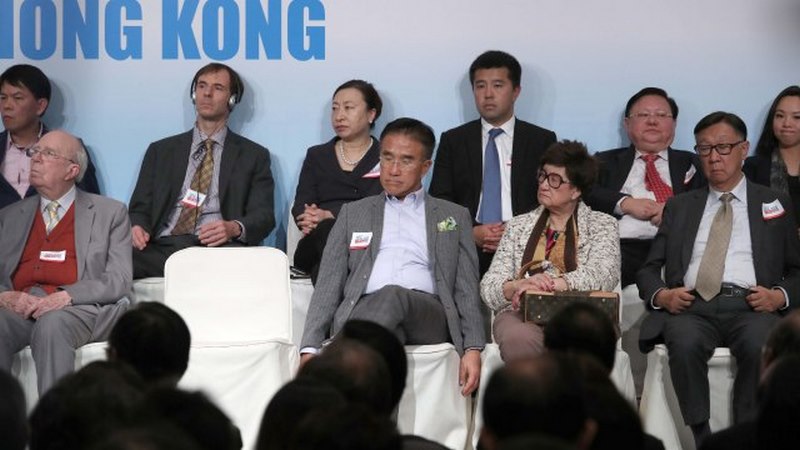
She said she believed the central government was sincere in resolving the political deadlock in Hong Kong with their announcement, adding that the pace of democratisation in Hong Kong is faster than during the colonial times.
“Our country is allowing Hong Kong people to have a bigger say in running Hong Kong,” she said. “If I am elected as the chief executive, I am willing to restart political reform under the August 31 decision.”
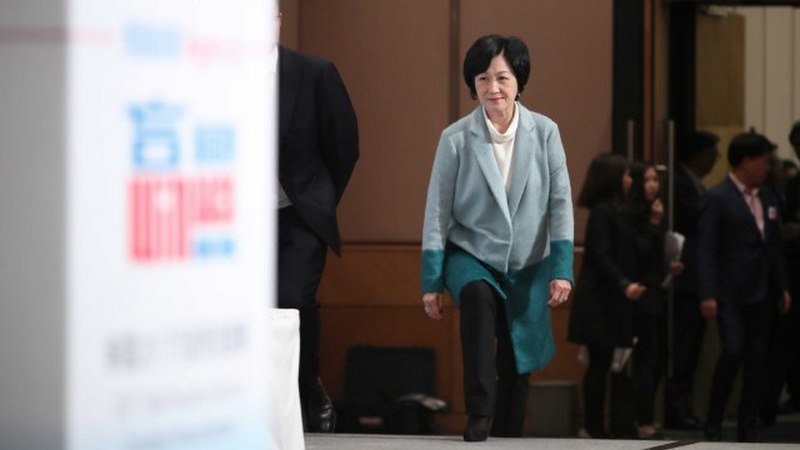
“At the same time, [I would] carry out suitable measures to implement Article 23 of the Basic Law and fulfil the SAR government’s constitutional duty.”
She added that Hong Kong people should not be too afraid of Article 23, a security law banning acts of treason and subversion against the Chinese government, because “this kind of law exists in every country.”
In 2003, Ip was embroiled in controversy as she tried to push for the controversial law to be passed in the legislature as the Secretary for Security. She eventually resigned from her post following mass demonstrations.
One Country, Two Systems
Michael Tien Pak-sun, deputy chairman of her party, said the rise of the Hong Kong independence movement crossed the bottom line of “One Country, Two Systems.” He added that the next chief executive bears the responsibility to rebuild trust between the Chinese government and Hong Kong citizens.
“In my heart, Mrs. Ip is the person who can do this. She has served Hong Kong for 40 years, and she has been honest and responsible,” he said.
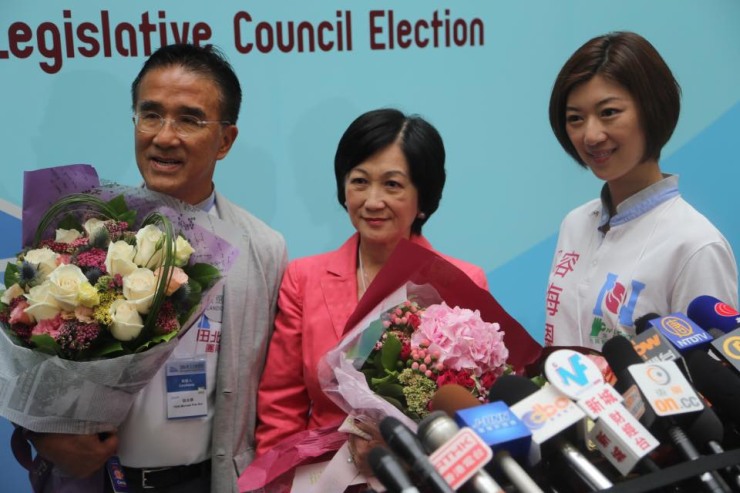
Ip said the “One Country, Two Systems” principle is the only option to bring about unique opportunities for the semi-autonomous city, adding that talk of separatism made Beijing feel that its sovereignty over Hong Kong was not respected.
Land issues
Ip said the most pressing issue for the next administration is to solve land and housing problems, adding that this is crucial in maintaining Hong Kong’s role as an international financial centre.
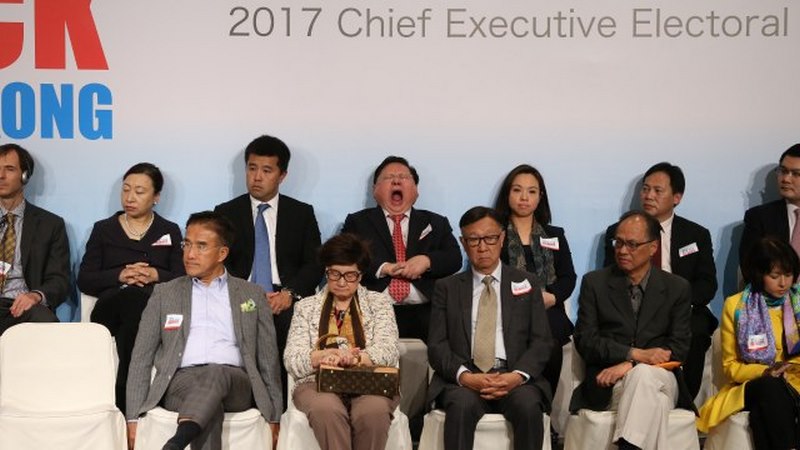
“The government has little vacant land available as there are only 391.5 hectares left for development, and it is expected that this supply will be depleted within the next few years,” she said on her campaign website.
She added that the next chief executive should seek a balance between delivering change and maintaining stability.
“Our society needs stability, while at the same time we need change for the better. It should be possible for you to manage both,” she said.
Ip added that the next leader should also aim to achieve social harmony by communicating with different parties and solving core governance issues.
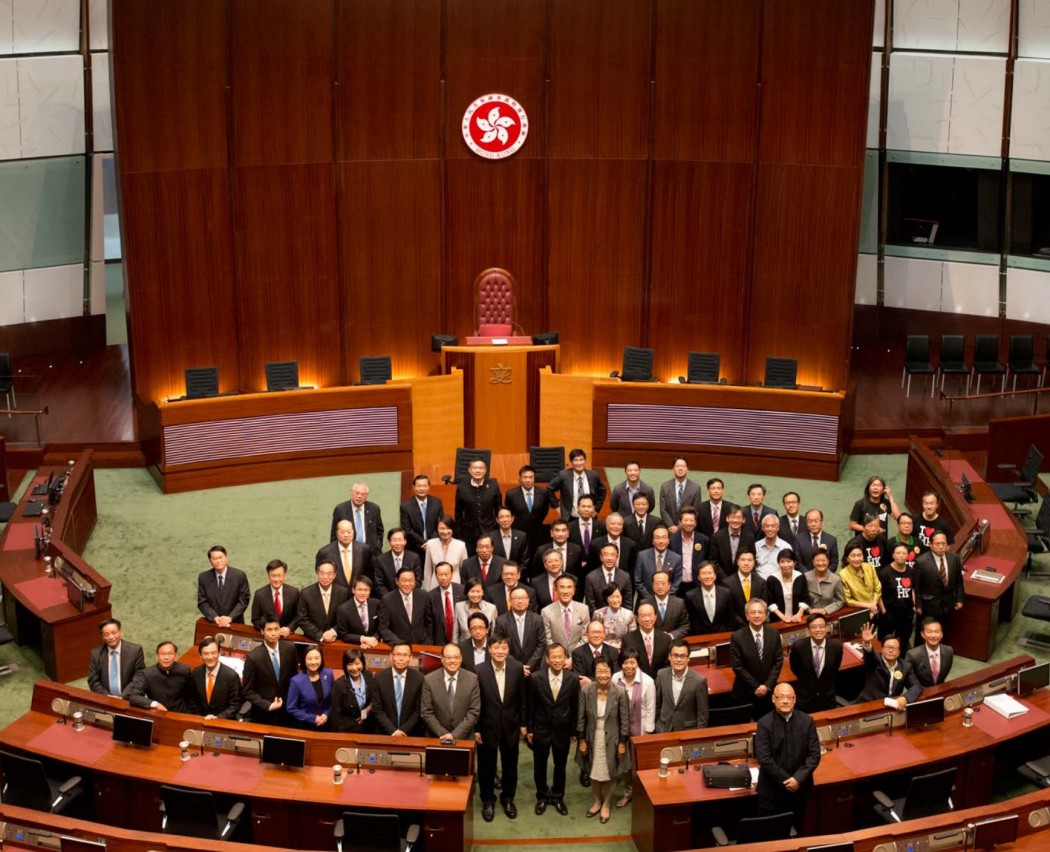
“Love Hong Kong”
Ip said she decided to run because she wanted to contribute to society.
“Over the past few years, the rejection of the political reform proposal, 79 days of occupy movement and the recent controversy surrounding LegCo’s oath-taking saga have led to unprecedented division and hostility among Hong Kong’s society,” she said. “Like every Hong Kong citizen, I wish the Hong Kong we all love can be put back on the right track. I feel my call is to stand forward and walk the extra mile for Hong Kong.”
Ip will remain as a lawmaker in the Legislative Council representing the Hong Kong Island constituency, as well as maintaining her position as chairperson of her party.
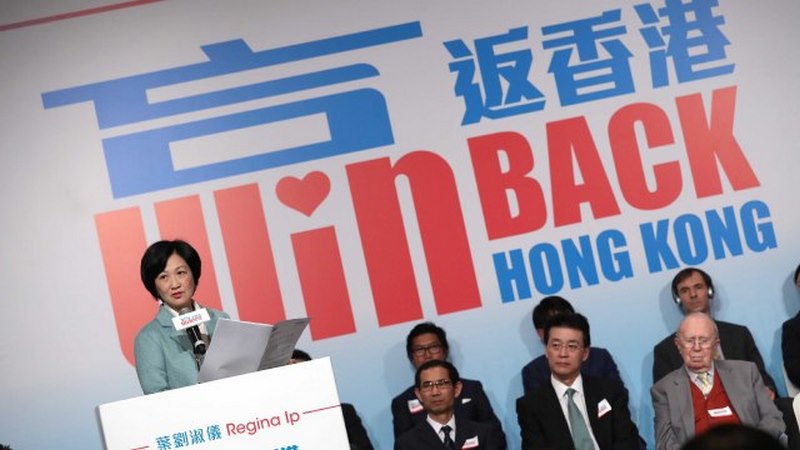
On Wednesday night, Ip announced that her party unanimously agreed that she will run for the chief executive position. She has also resigned from her position as a non-official member in the Executive Council, and was later approved by Chief Executive Leung Chun-ying.
She then claimed that two pro-democracy lawmakers Claudia Mo Man-ching and Leung Yiu-chung had expressed words of support for her in the election. Both Mo and Leung dismissed the claim and said they were just being polite.
On Monday, the chief executive hopeful said that implementing an Article 23 security law remains a constitutional duty no matter who becomes the next leader, adding that she would “definitely” implement it if she is elected.
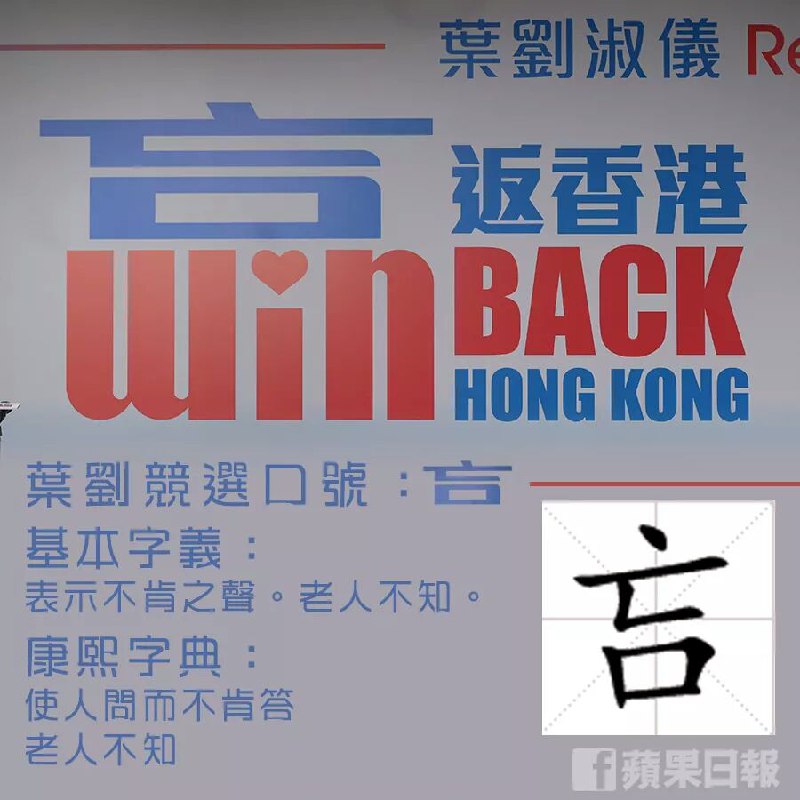
Meanwhile, Ip’s campaign slogan in Chinese cut off the lower part of the character 贏 (win) to add the English word “win.” Some noticed the rest of the character forms another Chinese character 吂, which means “not answering when asked questions” or “slow in reaction owing to old age,” according to the Kangxi Dictionary.
